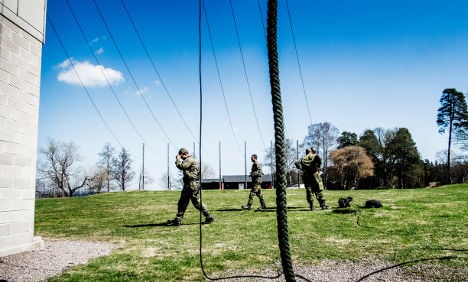
A Swedish soldier in training. Photo: TT

Another Swedish soldier in training. Photo: TT
As Sweden decides whether to bring back compulsory military service, defence expert Johanne Hildebrandt tells The Local that Sweden would be much better off following Norway's "weak conscription" model.



Member comments